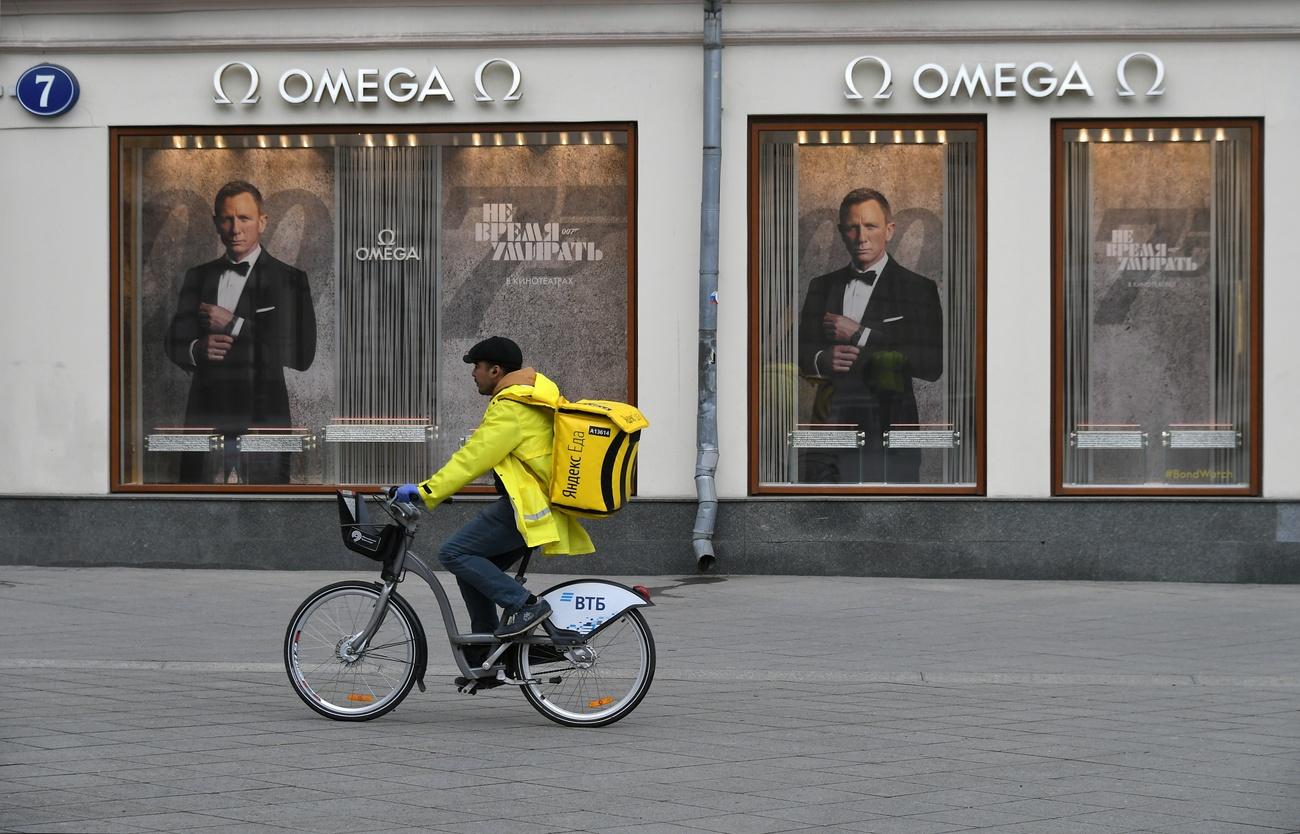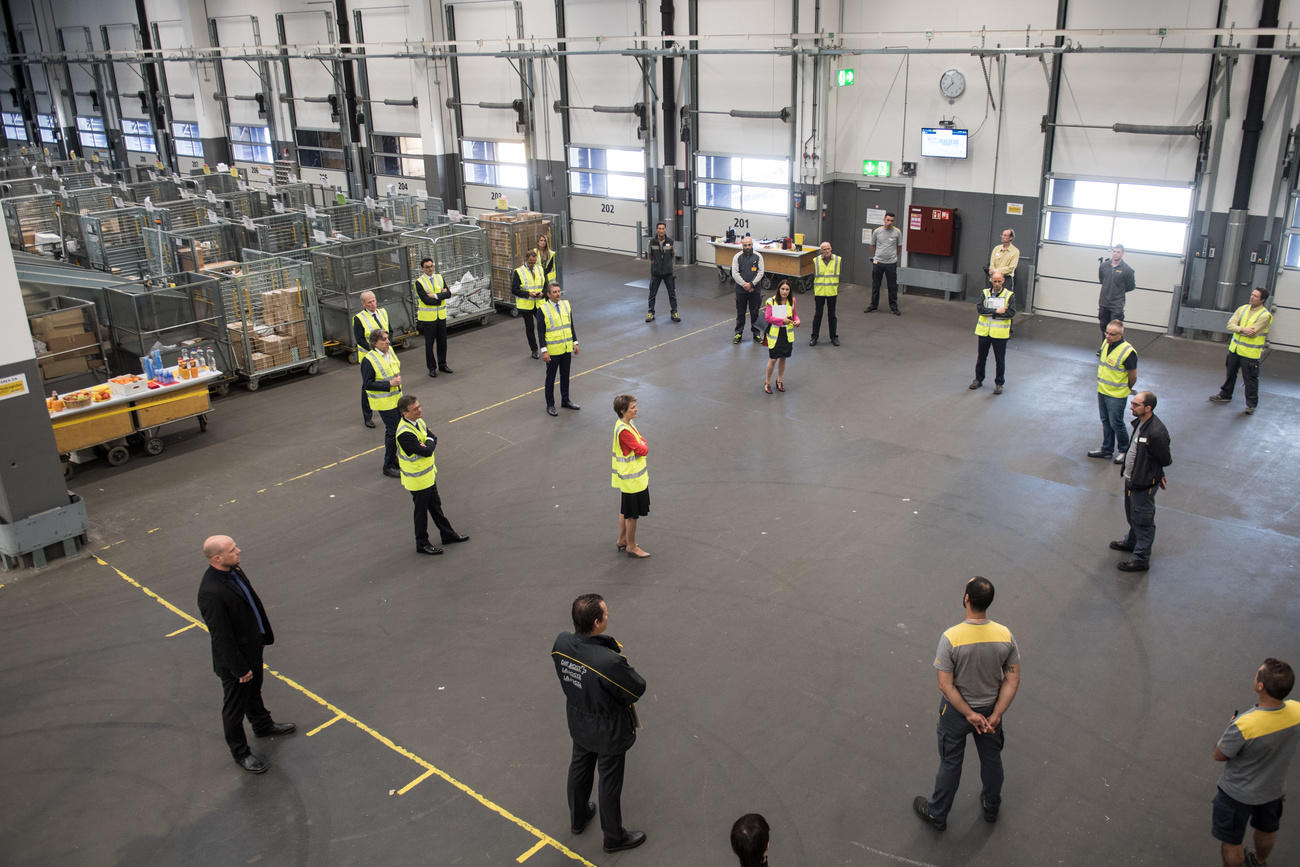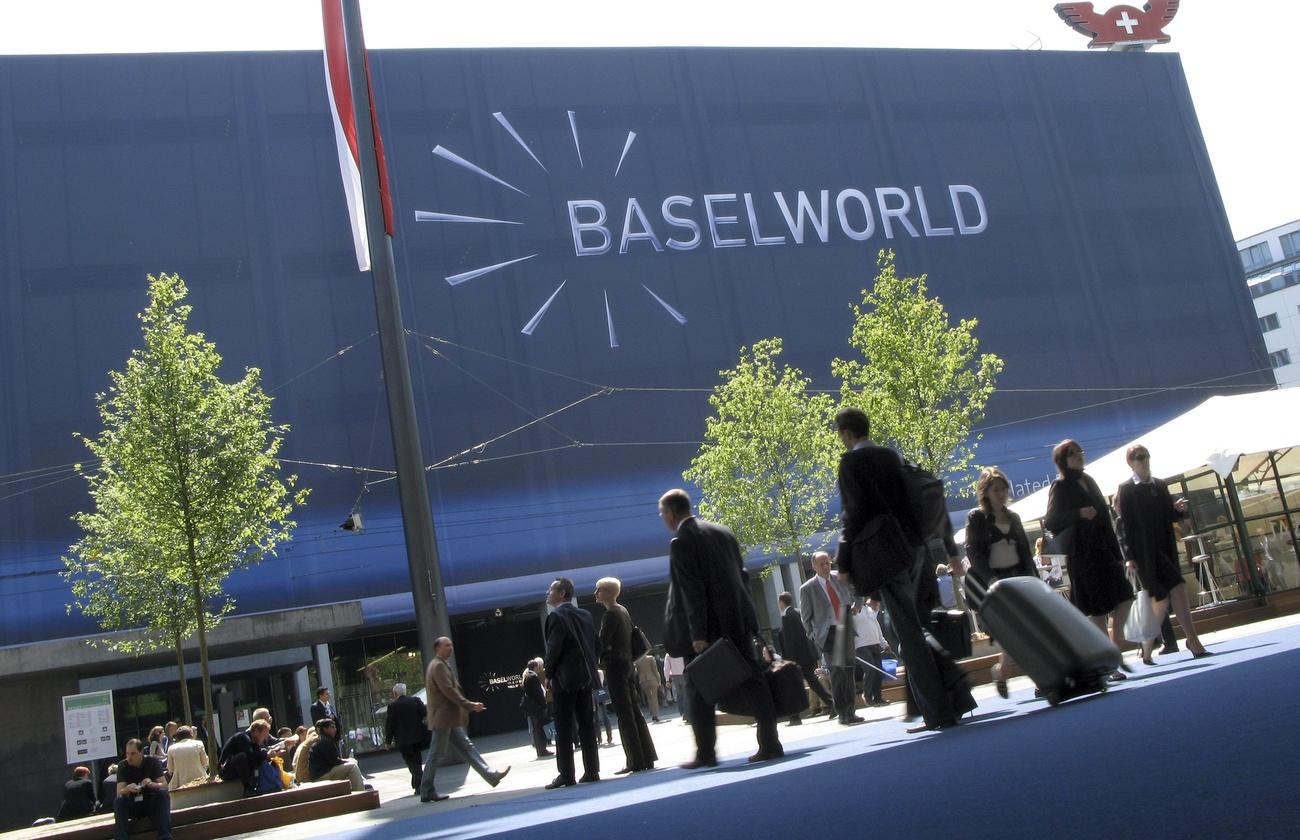Covid-19 brings Swiss watchmaking to a standstill

Switzerland’s watchmaking industry has been crippled by the coronavirus pandemic, with the sector likely to suffer the worst crisis of its history in 2020. Nevertheless, experts are confident in the ability of the industry to recover, as it has done in the past.
For several weeks, a deathly silence has reigned over Switzerland’s watchmaking workshops. Almost all production lines have been stopped, with employees required to stay at home as they wait for better times.
“Of the 50,000 people working in businesses that are covered by collective labour agreements, 40,000 are currently on partial unemployment. Something which has never been seen in the history of Swiss watchmaking,” says Ludovic Voillat, spokesperson for the Convention of Swiss Watchmaking EmployersExternal link.
The lockdowns imposed on a large part of the world’s population, the closure of stores and the inability to travel have put the brakes on sales of “Swiss Made” watches in markets around the world. According to a report by Bank Vontobel published in early April, the sector’s exports will decline by 25% this year, more than during the quartz crisis of 1975 (down 15.2%) or during the subprime crisis of 2009 (down 22%).
“The sector’s revenue is likely to fall on average by 20% this year,” confirms Olivier Mueller, expert watchmaker at LuxeConsult. “In terms of volumes, we’re going to fall back to levels seen in 1945 with probably fewer than 16 million watches sold.”
Subcontractors and small brands hardest hit
But not everyone working in what is one of Switzerland’s prime export sectors will be affected equally. Prestige brands such as Rolex, Patek Philippe, Audemars Piguet and Omega can be expected to ride out the storm without too much damage. But the case is vastly different for several small independent brands that could be forced to close up shop over the coming months.
“Between 30 and 60 ‘Swiss Made’ watch brands – of a total 350 – will not survive,” predicts Mueller. “By my count, a dozen watchmaking companies have already filed for bankruptcy since the beginning of the crisis.”
The industry’s subcontractors are also at risk of irreversible damage. In addition to a global recession which threatens to rival that of the oil crisis of the 1970s, the sector is already suffering from significant structural problems.
The development of connected watches in recent years delivered a heavy blow to “Swiss Made” watch brands active in the entry-level segment.
“The falling volumes, which have again been accelerated by this crisis, are having an impact on the suppliers who are nevertheless one of the pillars of our industry,” Mueller says.
How many job losses?
There are also serious concerns about the preservation of jobs and watchmaking skills.
“It’s difficult to see how Swiss watchmaking will be able to come out of this crisis without major social disruption,” says Raphaël Thiemard, head of the watchmaking division for Unia, Switzerland’s largest union.
While most businesses are for the moment holding out by resorting to mass or partial unemployment, it seems that waves of redundancies by the end of the year are inevitable.
Especially since temporary workers, always the first to be laid off during difficult times, already paid the price at the end of last year due to the marked reduction in exports to Hong Kong, a leading destination market for Swiss watches.
“During the 2009 crisis, the sector lost just over 4,000 permanent jobs. We could expect to see a similar evolution with the current crisis, even if it’s difficult to make predictions, given how many uncertainties there are,” Voillat says.
Everything will depend above all on the speed with which business resumes in Asian markets. In China, some positive signs are already being seen with the gradual end to the lockdown, although a full restart of the economy is not expected until the end of summer.
Waiting for ‘positive emotions’
That said, Bank Vontobel is betting on the industry making a strong comeback in 2021, with exports expected to rebound by around 15%. But the market could also be extremely saturated, with most brands having delayed the launch of their new models until next year.
“The Swiss industry has repeatedly proven its resilience and its ability to bounce back,” says Thiemard. “Its principal strength resides in its capacity to export its products to the entire world. We saw this during the Hong Kong crisis: when a market is in difficulty, other places pick up the slack, in this case China, Japan or even the United States.”
Jean-Daniel Pasche, president of the Swiss Watchmaking Industry Federation, recently sent a similar message to watchmaking businesses and associations.
“I strongly hope that our businesses will pass through this difficult period without being too affected in their substance and once again become fully operational once times are better: Swiss watchmaking will of course be present when people can again have positive emotions and the desire to treat themselves.”
Economic crisis hits the Jura and Alps
The Jura Arc, the cradle of the Swiss watchmaking and microtechnology industries, has been heavily hit by the economic crisis provoked by the Covid-19 pandemic, according to a study released last week by UBS.
Eastern Switzerland, which also counts thousands of jobs in the industry, is also suffering. Meanwhile, the near paralysis of the tourism industry has had an impact on the Alpine cantons of Graubünden and Valais.
Large urban centres such as Zurich, Basel, Geneva or Bern are less exposed to activities linked to tourism and manufacturing. While the impact there will be more muted, these areas will not escape the recession, with the Swiss economy expected to contract by 6.7% in 2020, its largest slowdown since 1975, as forecast by the State Secretariat for Economic Affairs (SECO).

More
Coronavirus: the situation in Switzerland
(Translated from French by Sophie Douez)

In compliance with the JTI standards
More: SWI swissinfo.ch certified by the Journalism Trust Initiative





You can find an overview of ongoing debates with our journalists here. Please join us!
If you want to start a conversation about a topic raised in this article or want to report factual errors, email us at english@swissinfo.ch.